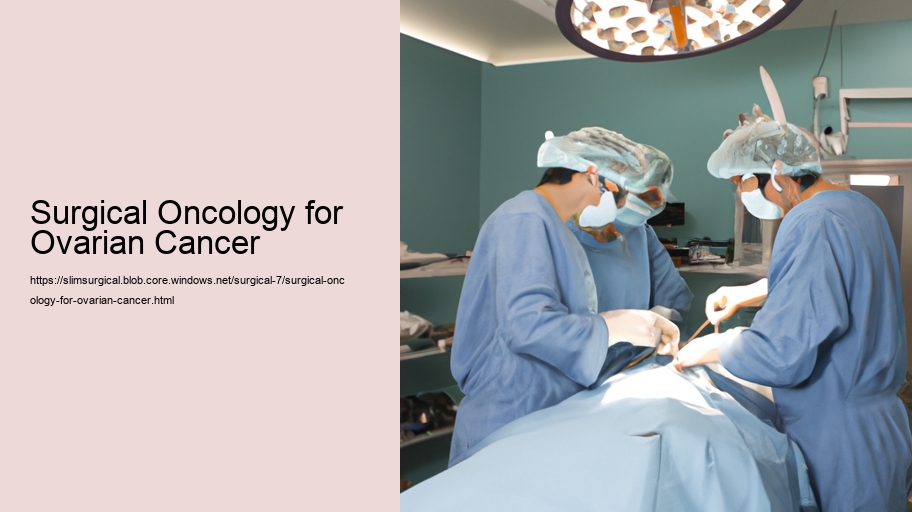Surgical Oncology for Ovarian Cancer: A Beacon of Hope
Ovarian cancer is a formidable adversary in the realm of women's health, often going undetected until it has spread beyond the ovaries, making it a particularly stealthy and challenging disease to combat. However, amidst the arsenal of medical interventions, surgical oncology stands as a beacon of hope for many women facing this diagnosis. In the journey of treating ovarian cancer, the role of surgical oncology is pivotal, not only in the potential for cure but also in the improvement of quality of life.
The journey often begins when a woman is confronted with the harrowing news of an ovarian cancer diagnosis. This can arise from a variety of symptoms that are unfortunately vague and easily mistaken for less serious conditions: bloating, pelvic pain, difficulty eating, or quick satiety. However, once ovarian cancer is suspected, typically through imaging and elevated levels of the CA-125 protein in the blood, surgical oncology takes center stage.
The initial surgery, often referred to as debulking or cytoreductive surgery, aims to remove as much of the tumor mass as possible. The philosophy underpinning this approach is that by reducing the tumor load, subsequent treatments, such as chemotherapy, can be more effective. In the hands of a skilled surgical oncologist, the surgery can involve the removal of one or both ovaries, the fallopian tubes, the uterus, and possibly parts of the intestines or other tissues in the abdomen that are affected by cancer.
For early-stage ovarian cancer, surgery may be the primary and sole treatment, with the potential to completely eradicate the disease. But ovarian cancer is often diagnosed at a later stage. In such cases, surgery is typically followed by chemotherapy to target any remaining cancer cells. The decision about whether to perform surgery first or to start with chemotherapy is complex and is personalized based on each woman's specific situation.
The surgical oncologist is not only a skilled technician but also a compassionate ally in a patient's fight against cancer. They consider various factors, such as the stage of the cancer, the patient's overall health, and personal wishes when formulating a treatment plan. Moreover, they are acutely aware of the potential impact of surgery on a woman's body and future, especially for younger women who may face decisions about fertility preservation.
Advancements in surgical techniques, such as minimally invasive surgery and robotic-assisted procedures, have improved outcomes and recovery times for ovarian cancer surgery. These innovations allow for more precise removal of cancerous tissue while minimizing damage to surrounding healthy tissue, leading to fewer complications and a quicker return to normal activities.
For many women, the experience of undergoing surgery for ovarian cancer is a transformative one. It is a complex mix of fear and hope, vulnerability and strength. The surgical oncologist is not just removing a disease; they are restoring a sense of control to a patient whose life has been abruptly invaded by cancer. The scars that remain are not merely physical but are also emblematic of a battle waged and the resilience of the human spirit.
In conclusion, surgical oncology for ovarian cancer is a critical discipline that offers more than just a chance for survival; it provides a pathway to healing. The surgical oncologist's role is one of precision, skill, and empathy, guiding patients through one of the most challenging journeys of their lives. As research advances and surgical techniques continue to evolve, there is an ever-growing optimism that the outcomes for ovarian cancer patients will only improve, shining a light of hope on what can be a very dark diagnosis.
